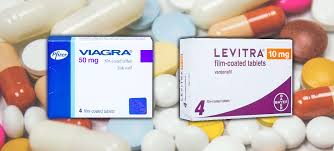The Remarkable Benefits of Rapamycin Exploring Longevity and Health

The Remarkable Benefits of Rapamycin: Exploring Longevity and Health
Rapamycin, a drug originally discovered in the soil of Easter Island, has garnered significant attention for its potential to enhance health span and longevity. This fascinating compound, known scientifically as sirolimus, is a macrolide compound that has shown promise in a variety of therapeutic settings. From its use in organ transplantation to its emerging role in offering anti-aging benefits, Rapamycin rapamycin 1mg represents a significant advancement in modern medicine.
Understanding Rapamycin
Initially developed as an immunosuppressant to prevent organ transplant rejection, rapamycin works by inhibiting a protein known as mTOR (mechanistic target of rapamycin). The mTOR pathway is critical for regulating cell growth, proliferation, and survival. By inhibiting this pathway, rapamycin can promote autophagy, a process that cleans up cellular debris and damaged components, contributing to cellular health and longevity.
The Anti-Aging Potential
Research into the anti-aging benefits of rapamycin has gained momentum in recent years. Studies in various animal models, including mice, have demonstrated that rapamycin can extend lifespan and improve health markers associated with aging. Notably, older mice treated with rapamycin exhibited improved metabolism, endurance, and cognitive function.

The implications of these findings are profound, suggesting that the mTOR pathway plays a significant role in the aging process. As mTOR activity increases with age, it may lead to detrimental effects such as increased inflammation, impaired cellular repair mechanisms, and decreased autophagy. Thus, managing mTOR activity through compounds like rapamycin could be a strategic approach to mitigating age-related decline.
Health Benefits Beyond Longevity
Besides its potential anti-aging properties, rapamycin has demonstrated efficacy in several health conditions. For instance, its immunosuppressive properties make it invaluable in organ transplantation, significantly reducing the risk of rejection. Furthermore, ongoing research hints at rapamycin’s role in treating various cancers, cardiovascular diseases, and metabolic disorders such as diabetes.
In oncology, rapamycin can inhibit tumor growth by disrupting critical signaling pathways that cancer cells rely upon for growth and survival. Preliminary studies indicate that rapamycin and its analogs may serve as adjunct therapies in specific cancer types, enhancing the effectiveness of traditional treatments.
Concerns and Considerations
While rapamycin holds great promise, it’s essential to consider the potential side effects and risks associated with its use. Common side effects include mouth sores, increased risk of infections, and alterations in lipid metabolism. Consequently, it is crucial that individuals considering rapamycin therapy discuss their health status with a qualified healthcare provider to weigh the potential benefits and risks adequately.

Additionally, the optimal dosage and duration of treatment for anti-aging effects have yet to be conclusively established. Most studies have been conducted on animal models, and human research is still in its nascent stages. Therefore, more rigorous clinical trials are required to determine safety profiles and therapeutic windows for human use, especially in anti-aging contexts.
Current Research and Future Directions
The ongoing research into rapamycin’s effects on aging continues to excite scientists and healthcare professionals alike. Initiatives such as the Targeting Aging with Metformin (TAME) trial seek to explore various compounds, including rapamycin, for their ability to alter the aging process in humans. This heralds a new era where we may have pharmaceuticals specifically designed to extend the health span of individuals.
The possibility of using rapamycin as a preventative measure attracts much interest, especially as the global population ages. As the field of geroscience grows, more investigations are likely to follow, looking closer at how mTOR modulation can affect health span and longevity.
Conclusion
Rapamycin represents a beacon of hope not just for those needing immunosuppression following organ transplants, but also for anyone interested in enhancing their health span and tackling age-related diseases. As research progresses, it will be crucial to understand the full spectrum of rapamycin’s effects, particularly its implications for long-term use in healthy aging. While more human studies are necessary, the potential for rapamycin to revolutionize how we approach aging cannot be overstated.
With ongoing investigations, the science surrounding rapamycin will continue to evolve, helping to define a future where aging may not just be managed but significantly improved. Through a combination of lifestyle changes and compounds like rapamycin, we might not just survive longer but thrive in our golden years, opening the door to an unprecedented understanding of longevity and health.